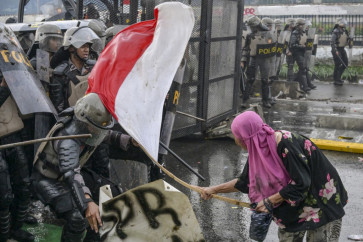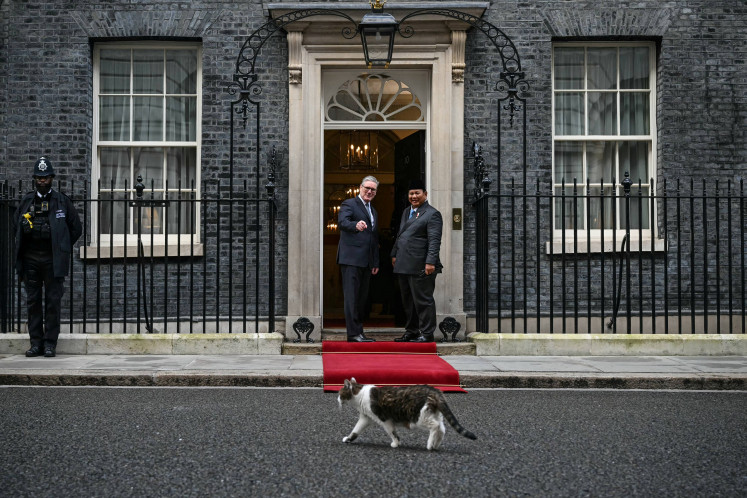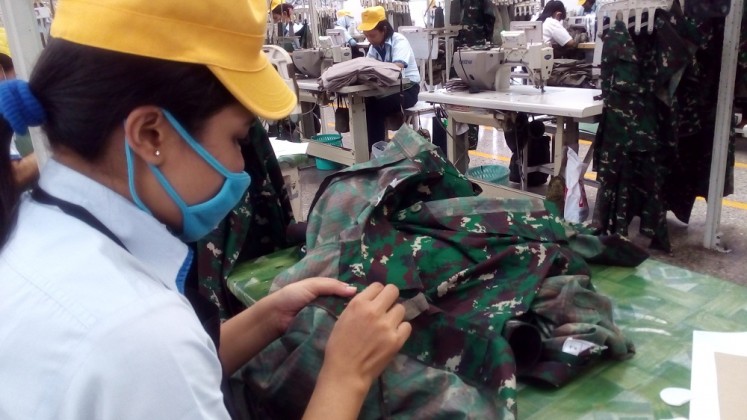Popular Reads
Top Results
Can't find what you're looking for?
View all search resultsPopular Reads
Top Results
Can't find what you're looking for?
View all search resultsTimorese families set to be reunited
The first state-facilitated reunions of family members long separated from each other are to begin on Monday in Dili and a few other areas outside Timor Lesteâs capital
Change text size
Gift Premium Articles
to Anyone
T
he first state-facilitated reunions of family members long separated from each other are to begin on Monday in Dili and a few other areas outside Timor Leste's capital.
The reunions of 15 Indonesians, now aged 24 to 50, are part of the work of the governments of Indonesia and Timor Leste, as urged by the now dissolved Commission for Truth and Friendship of Indonesia (KKP) and Timor Leste.
The same recommendation was issued by the Timor Leste Commission for Truth and Reconciliation (CAVR). The family reunions this week are being facilitated by the National Commission for Human Rights along with several NGOs in Indonesia and Timor Leste.
In 2011 then president Susilo Bambang Yudhoyono issued a presidential regulation to implement the family reunions.
'But ironically both governments have not done much to find the children who were lost during the conflict in East Timor from 1975 to 1999,' commissioner Sandrayati Moniaga said.
The 25-year armed conflict sparked by Indonesia's annexation of East Timor (now Timor Leste) in 1974 ended with a 1999 referendum that resulted in the independent state of Timor Leste.
Isabelina Pinto, a Timorese who said she was lucky to be found in Bekasi, West Java, by her family when she was five years old, is among those facilitating the reunions.
'We have just been motivating [family members] and helping them to meet each other; imagine how it must feel to be separated for 30 years and to not remember your family.'
Many Timorese children were adopted by Indonesian orphanages or members of the military.
An unknown number were told their parents had died, only to find out later that their parents were still alive when they were taken out of Timor. Meanwhile, many adopted as infants only found out years later that they were adopted.
Those who were to be reunited participated in a one-day workshop on Sunday in Canggu, near Denpasar, which was closed to the press. Organizers said it was part of preparations before the reunions.
Victor da Costa, who was taken out of Timor when he was four years old, found his family in 2004 and learned that his parents had died.
'I was considered dead too; my grave was in the middle of theirs,' said Victor, who along with Isabelina helped in the search for the families of their fellow Timorese.
Reunions with long-lost family members would be traumatic, he said, given the adaptation with extended families and the complex customs involved in accepting a family member who is believed to have died.
'One mother had even refused to meet her child,' said Victor, a cofounder of the Jakarta-based
Indonesian Association of Families of Missing Persons (Ikohi).
Indonesia established the KKP in 2005 to uncover the truth behind the violence that took place in the aftermath of the 1999 referendum. The KKP was disbanded in 2008 after producing a report detailing gross human rights violations in Timor Leste.
Meanwhile, the CAVR published a report titled Chega! about the human rights violations that took place over the 25-year period.
The study confirmed that many atrocities occurred from 1974 until 1999 when Timor Leste was still the Indonesian province of East Timor, said Walsh, who was part of the post-CAVR team.
The study found that at least 102,800 civilians died during the conflict. Around 18,600 of them were unlawfully killed or disappeared and at least 84,200 people died from hunger and disease.
The highest number of unlawful killings and disappearances occurred in 1999. At least 1,400 and possibly as many as 2,600 people were killed unlawfully or disappeared at that time.










